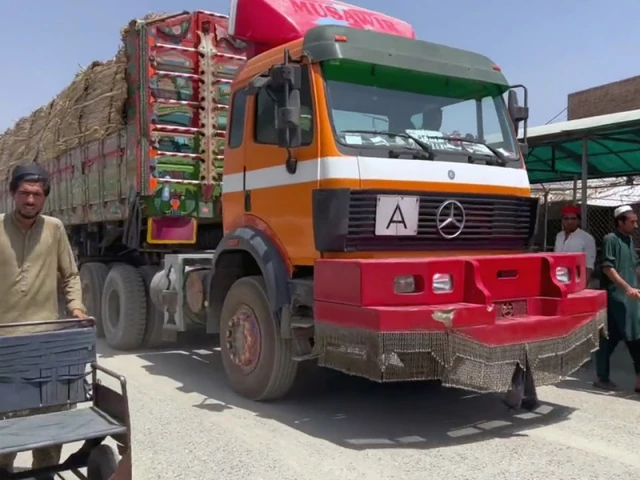Over 200 trucks carrying tomatoes, onions, grapes, apples stranded at Torkham junction halting trade with South Asia
Afghanistan’s fresh fruit exporters are facing mounting losses as the closure of a key land route to Pakistan leaves over 200 trucks of tomatoes, onions, grapes and apples stranded at the Torkham crossing, halting trade with South Asian markets.
According to the Dry Fruit Exporters Union, shipments of fresh fruit have largely stopped, although limited quantities of dried fruit are still being flown out. “It is now apple season and the only nearby and convenient route to sell fruit has been lost,” a spokesman said.
Traders estimate that the country’s fresh fruit exports have fallen by as much as 60 to 70 percent since the shutdown began nearly six months ago. With land routes blocked, exporters say air transport has become the only option for shipping products. But the high cost of air freight and the weak demand for expensive shipments make this alternative financially unsustainable for many.
Read: The Pakistan-China partnership is turning saline coastal land into fields of dragon fruit
An exporter said his tomatoes were sent back to Jalalabad after being detained for two days at the border. Without access to major markets, he was forced to sell them at low prices to prevent destruction, compounding economic losses. Repeated trade disruptions have pushed many exporters into debt and close to bankruptcy.
While the Torkham crossing remains closed to Afghan exports bound for India and Pakistan, limited reopenings at the Kharlachi and Ghulam Khan crossings allowed brief coal shipments before exports of fresh commodities were again suspended.
The situation is further exacerbated by the loss of port access through Iran’s ports of Chabahar and Bandar Abbas, where international sanctions have curtailed operations, leaving Afghan exporters with few viable trade routes.
Read more: Sweet prospects: increasing Pakistan’s mango exports
Exporters are urging the Pakistani government to separate trade from politics and resume transit, while calling for investment in Afghanistan’s refrigeration, packaging and shipping infrastructure. They note that even a 200-ton cold unit remains unaffordable for most, but such facilities could stabilize markets, create thousands of jobs and protect farmers from future border disruptions.
The shrinking corridor for trade in produce threatens a crucial source of income for Afghan farmers and export-oriented businesses. Without swift action, the fresh produce sector faces a prolonged downturn with far-reaching consequences for employment, agricultural investment and regional trade links.



